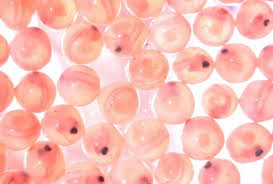What Happened to All Those Frozen Eggs?
By Sarah Elizabeth Richards,
The New York Times
| 12. 21. 2019
The potential for egg freezing to allow women to pause their biological clocks is one of the most astonishing developments of recent fertility science. The promise was thrilling: Women could enjoy more time to find the right partners, break up with the wrong ones and become emotionally and financially ready to become mothers.
Enthusiasts even fantasized the technology would promote gender equality by giving women control over their fertility so that they wouldn’t have to scale back their career ambitions during their 20s and 30s. “Freeze Your Eggs. Free Your Career” blared a 2014 cover of Bloomberg Businessweek.
When Facebook and Apple announced that same year that they would pay for egg freezing for employees in a “game-changing perk,” Apple said in a statement, “We want to empower women at Apple to do the best work of their lives as they care for loved ones and raise their families.”
Egg freezing was an act of self-care — and professional advancement — for the modern woman.
“All the talk in the beginning was about how egg freezing would be as big...
Related Articles
By Diaa Hadid and Shweta Desai, NPR | 01.29.2026
MUMBRA, India — The afternoon sun shines on the woman in a commuter-town café, highlighting her almond-shaped eyes and pale skin, a look often sought after by couples who need an egg to have a baby.
"I have good eggs,"...
By George Janes, BioNews | 01.12.2026
A heart attack patient has become the first person to be treated in a clinical trial of an experimental gene therapy, which aims to strengthen blood vessels after coronary bypass surgery.
Coronary artery bypass surgery is performed to treat...
By Staff, ScienceDaily | 01.05.2026
Scientists at UNSW Sydney have developed a new form of CRISPR technology that could make gene therapy safer while also resolving a decades-long debate about how genes are switched off. The research shows that small chemical markers attached to DNA
...
Following a long-standing CGS tradition, we present a selection of our favorite Biopolitical Times posts of the past year.
In 2025, we published up to four posts every month, written by 12 authors (staff, consultants and allies), some in collaboration and one simply credited to CGS.
These titles are presented in chronological order, except for three In Memoriam notices, which follow. Many more posts that are worth your time can be found in the archive. Scroll down and “VIEW...




